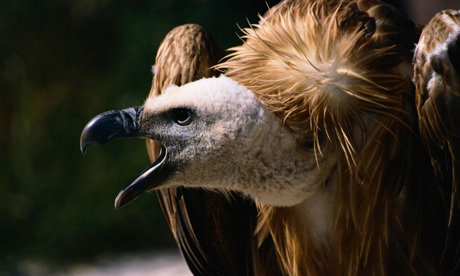The first Saturday in September each year (September 05 in 2015) is observed as International Vulture Awareness Day. With some species under severe threat of extinction, International Vulture Awareness Day aims to educate a reluctant public in the critical role of this creature to the well-being of the environment. The key role of the vulture in signalling the presence of a carcass to other scavengers prevents contamination by pathogens and helps keep nature free of disease.
Diclofenac - The Killer Drug
- Diclofenac is an anti-inflammatory used in animals such as cattle and pigs, but it is highly toxic to vultures and kills them hours after they have eaten a contaminated carcass.
- Diclofenac use in livestock was linked to the near-extinction of vultures in Pakistan, India and Nepal in the 1990s.
- Three species of South Asia’s vultures have declined by 97% and one of the species by 99.9%.
- Residues of diclofenac remained in livestock carcasses, that were then eaten by vultures.
- In 2006, the government of India enacted a ban on production, importation and sale of veterinary diclofenac products, followed soon after by Pakistan, Nepal and Bangladesh.
- Since then, vulture population declines in South Asia have slowed or been reversed.
- A safe alternative to diclofenac exists and is widely available, which would limit any adverse effects of a ban.

What is SAVE?
The Jatayu Conservation Breeding Centre is located in










